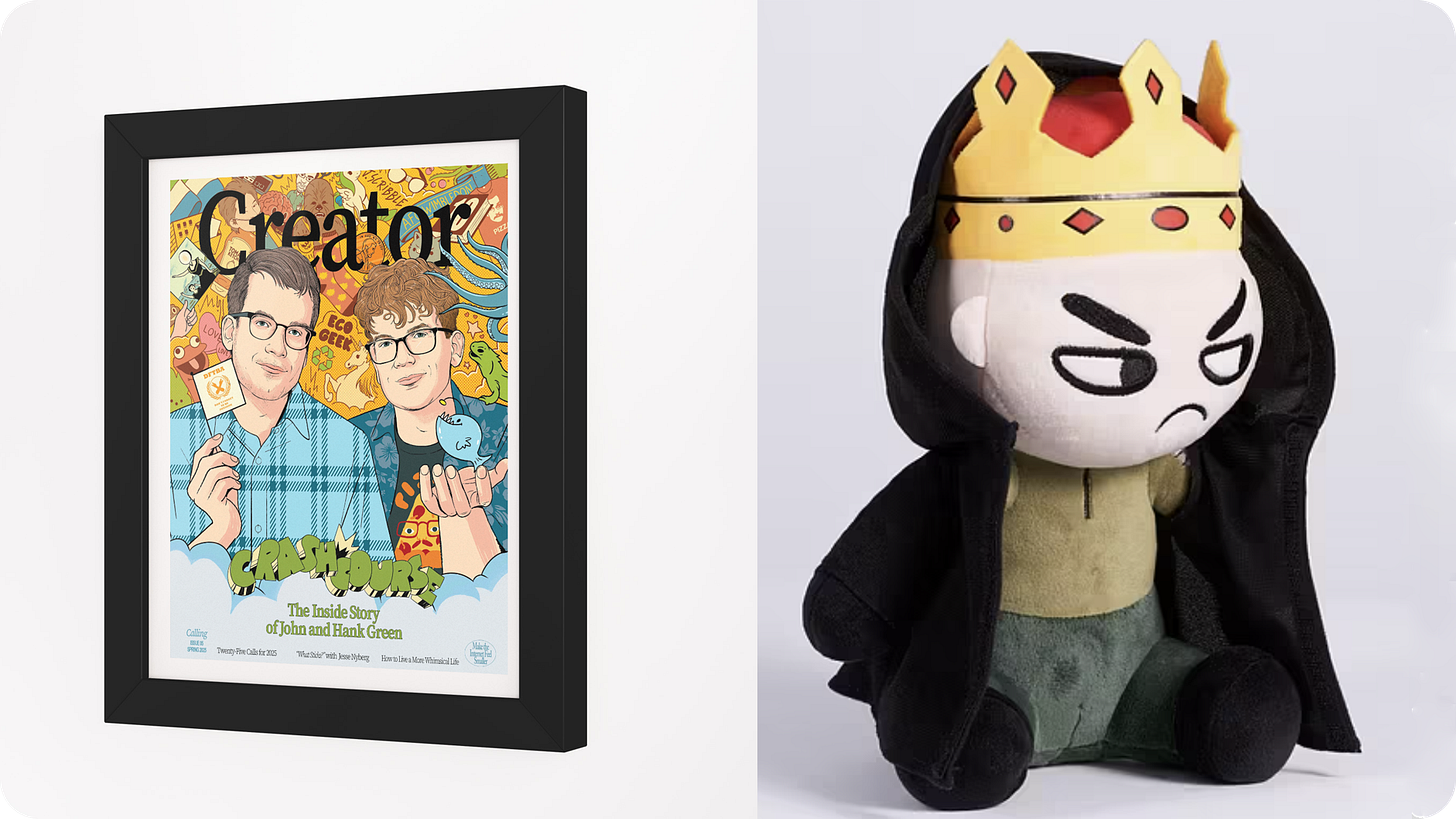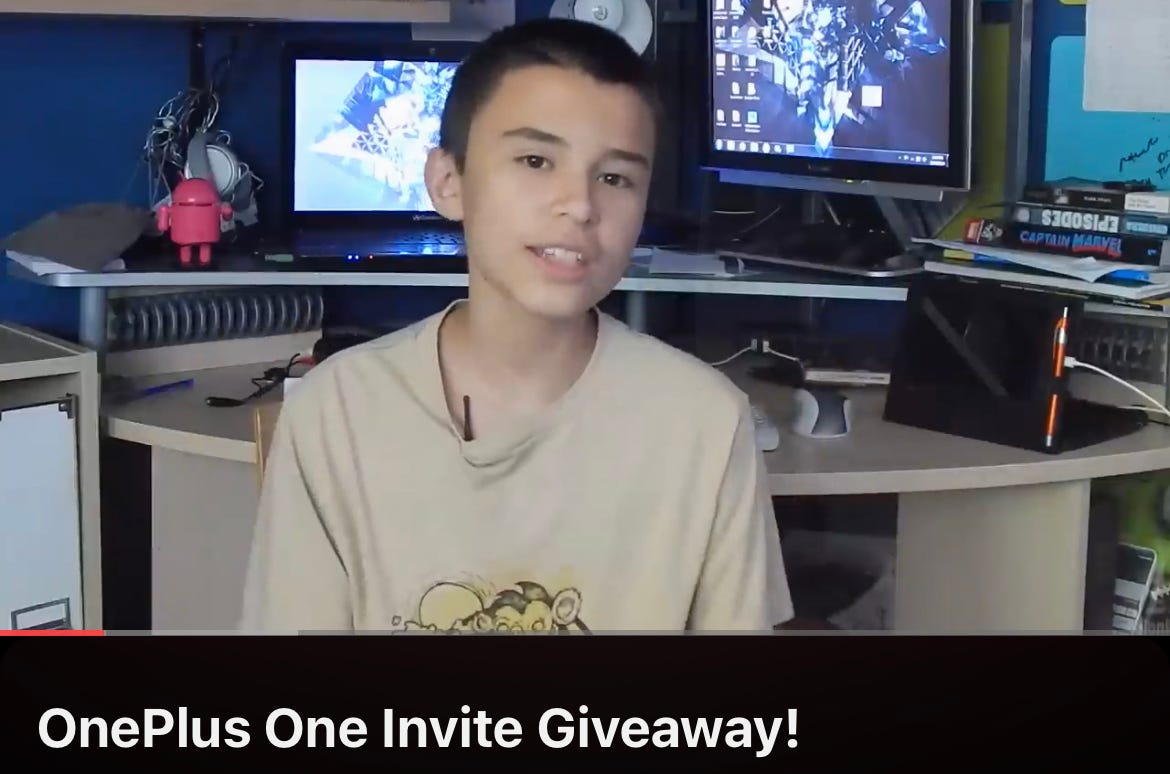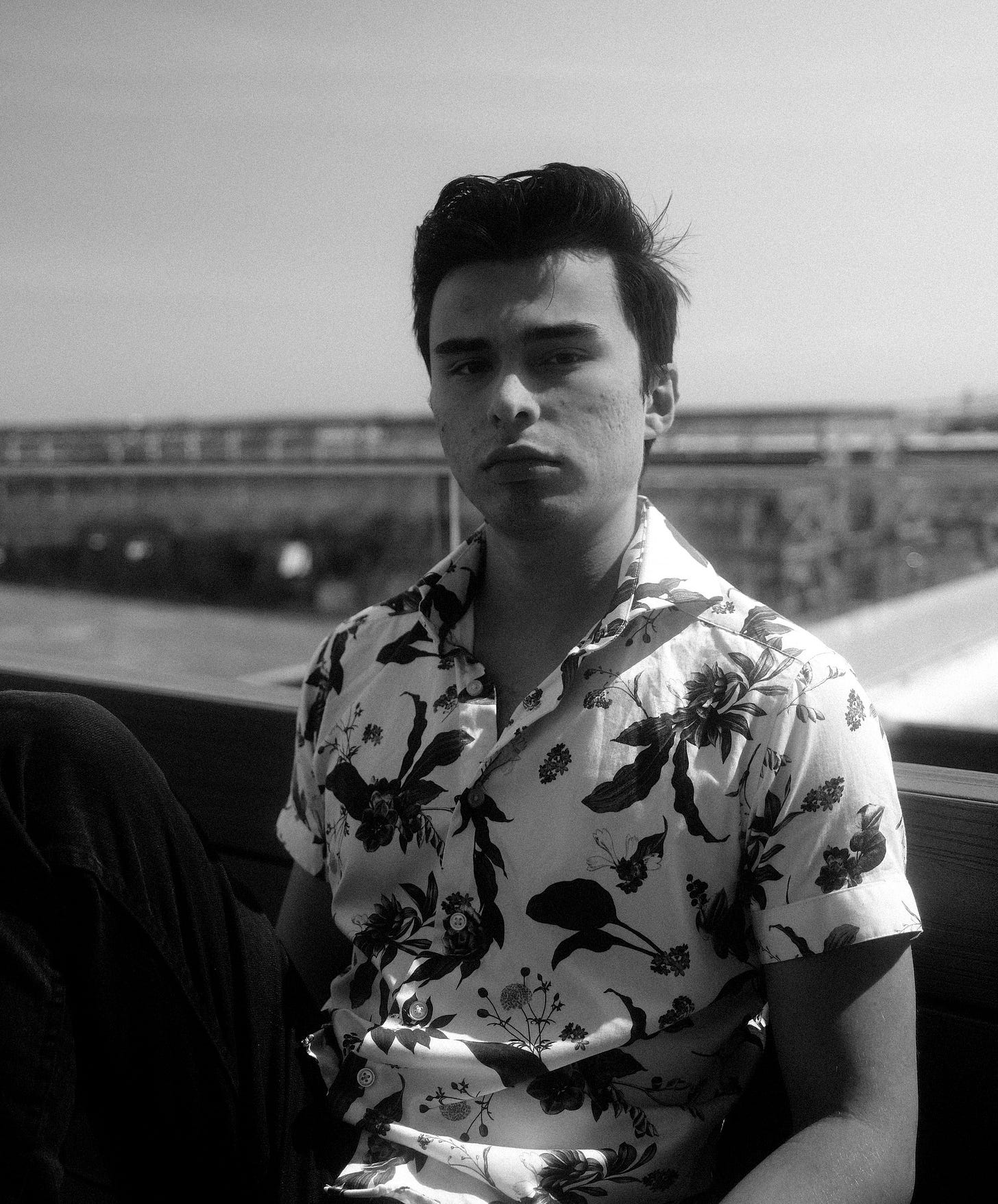Numbers Inspire Stories, Too 🔢
A conversation with The Studio's Eric Villa
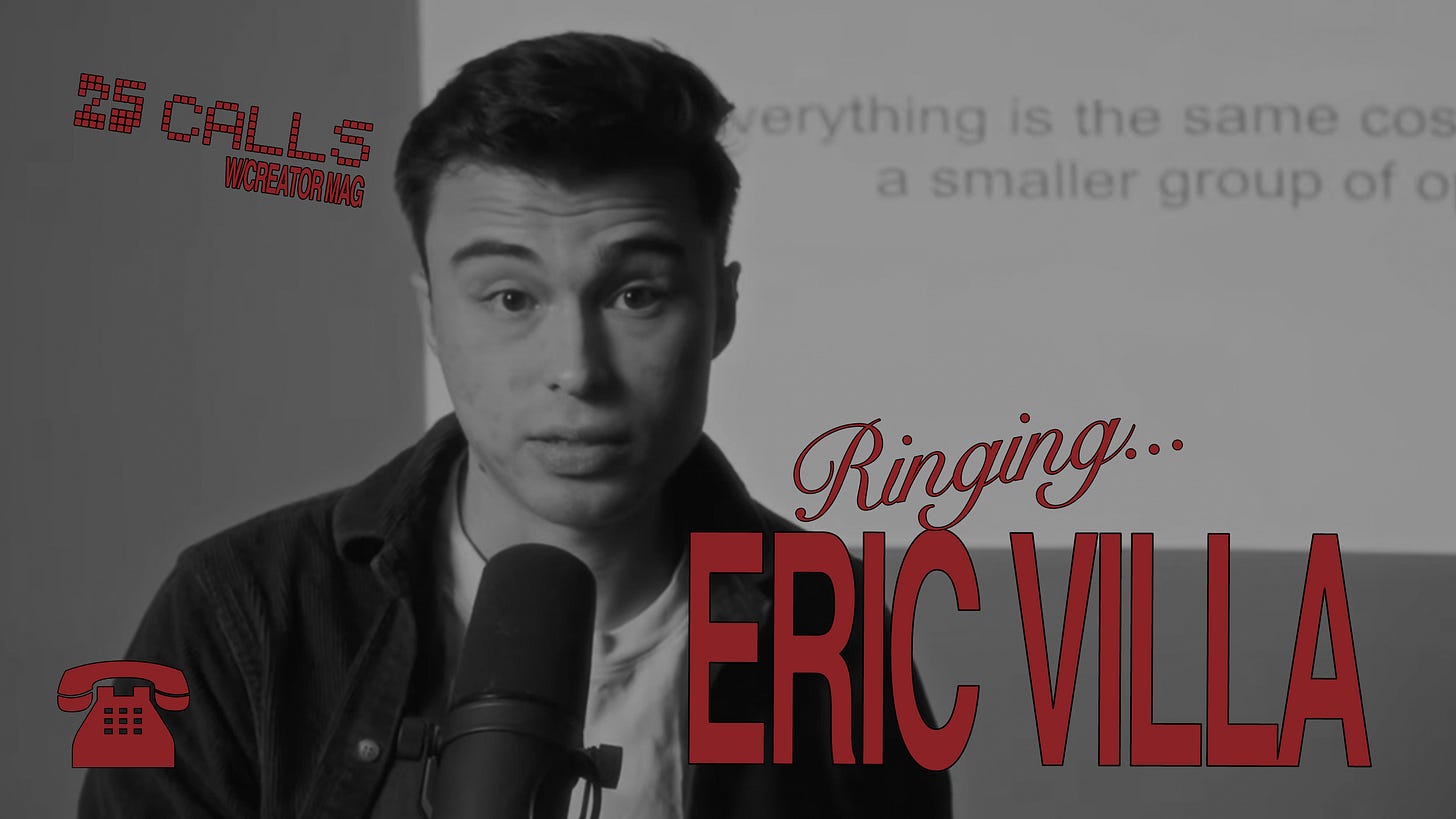
blog.sixty // When I asked Eric Villa if he considers himself a tech creator, he paused, before answering:
“I guess I'd call myself a content strategist. Most creative people look at beautiful landscapes or gorgeous architecture or the human soul to, like, really tell these beautiful stories.
And I can look at numbers and get inspired to tell some sort of story. That is my conduit for ideas.”
Eric started uploading tech review videos to YouTube in middle school. It became an outlet not only to express himself, but also make friends—and ultimately, pursue a career.
And while the interviewees we typically feature in Creator Mag lean more creative than analytical, I really enjoyed this conversation with Eric because I believe it shows that those two buckets don’t always have to be at odds with one another.
Read on for his thoughts on “retention editing,” reading comments, and the Internet’s evolving role in steering culture. But before you do: It’s your last day to take 15% off when signing up for our full-day storytelling event, “Short Story Long!”
Make sure to use code “THEBLOG” at checkout—and pop out to Chicago for six-plus hours of breakout groups with creative peers, instruction from an award-winning professional, and damn good stories.
— NGL
P.S. Last blog, we asked whether art is the cure to burnout—and unpacked the incentive structures behind independent journalism. You can read it here.
Sponsored by Fourthwall
Should We Make a Custom Plushie?
Okay, okay—that might not be the right fit for our current audience.
Still, as we continue designing our next drop, we’re tinkering with fresh new items, from posters to notebooks to even…candles.
How? Fourthwall. Our go-to ecommerce platform comes packed with hundreds of retail-quality products that we can design and sell instantly.
So we had to ask…
P.S. 200,000+ artists and creators use Fourthwall to power their online stores—start selling for free today.

Eric Villa is a tech creator and content strategist based in Jersey City, New Jersey. Though he’s a Chicagoan through and through, he moved eastward to take a job with tech creator MKBHD—and now runs their behind-the-scenes YouTube channel, The Studio.
The following conversation has been edited and condensed for clarity.
NGL: Hey Eric! What was your biggest win from 2024?
EV: So when I came in to run The Studio last year, I think the biggest thing is that this is an ensemble YouTube channel where everyone here can participate—and should participate in it. And that's uniquely difficult on YouTube, where people tend to subscribe because they fall in love with one person.
I did this delicate dance where I had to internally get the people at our studio to trust me, because they hustled and poured themselves into these really great creative projects. And I was coming in and saying, we need to change things to set ourselves up, to make this a more sustainable space. But I also wanted to make sure that people still felt empowered and felt like they had ownership in the channel.
That was a really difficult push-and-pull that I'm really proud of. I'm proud of the fact that we're finding ways to make sure that everyone's interests and domain expertise have a little bit of time to shine, even as we do the delicate dance with our audience, who might not be one hundred percent interested in every niche interest that we have here—or who might subscribe to The Studio just because they love Marques [Brownlee].
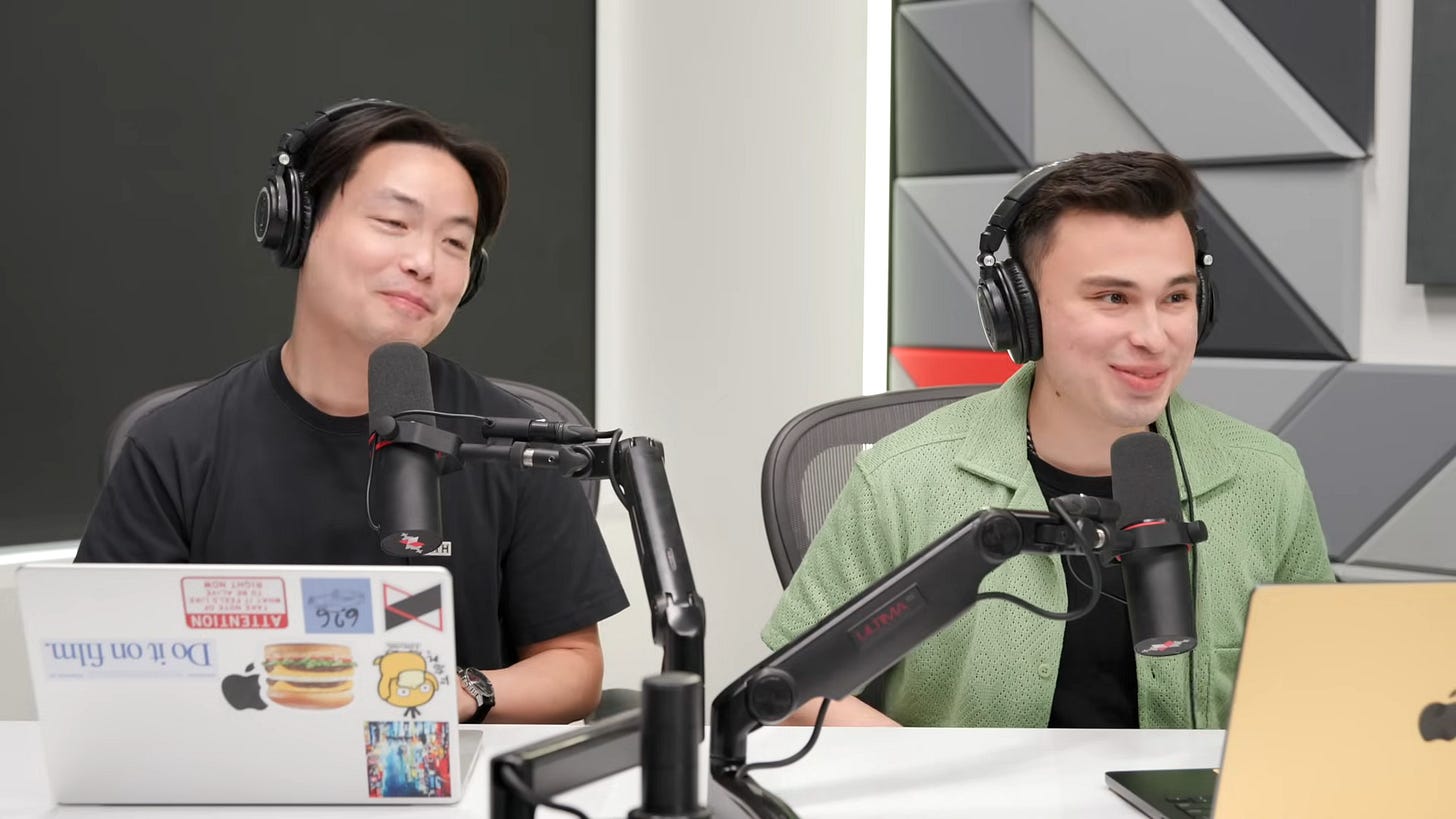
NGL: Yeah, it's a good point—this element of learning how to work within an ensemble and communicate with all the necessary stakeholders.
What do you think is the biggest learning you’re bringing into this year?
EV: The most tangible thing I've learned is that there’s a direct correlation between an audience's time spent with you and future retention on your videos.
So the whole concept of retention editing…I understand why it works on smaller channels because an audience doesn't trust you yet, but you could make an argument that it hurts trust because you're spending less time getting a feel like that person's a real person.
It creates this feedback loop where you have to constantly prioritize retention editing. It's like doping for YouTube, right? And the way that you get to this healthy place with your audience…I've noticed that our retention on The Studio improves not because we're doing crazy editing or pacing, but finding more and more ways to put our faces on videos.
So that regardless of who shows up, people go, I trust at least one face in this video. And I think that person is interesting, and I respect their opinion. The fact that trust directly, analytically correlates to retention is the perfect epitome of content strategy, I think.
You can look at all the data, but there is this qualitative element. That's something I've learned from Marques.
NGL: What’s the more esoteric answer?
EV: Marques is really good at thinking about one person when he's making a video, and having that be emblematic of a larger audience. And when you think of making videos in the context of empathizing with a couple people who you're close with, it is so much easier than thinking of it in the context of thousands and thousands of people.
That's not to say you shouldn't study. And I'm a content strategist, so obviously, there's a million caveats that I could think of for why that's not true. But the ability to close your eyes and see your audience as just three people in a room that you're having a good conversation with—that's the underpinning of so many of our strategy conversations.
It just became clear that I need to take the time to talk with our audience on Twitter and see the other stuff they're tweeting. I need to see the conversations that folks get into. I need to read the comments—not because I want validation, but because I want to be able to empathize with this person and understand their taste and their worldview and what they care about.
That is honestly a lot easier than looking at data, but it's also something that I don't think our culture encourages right now.
NGL: My last question I had to add…as you look ahead to this year, what's giving you hope?
EV: I think we have hit a place where the Internet is culture, right? It's not this interesting subculture only for young people. The average age of an MSNBC viewer is sixty-five, seventy-five—something like that. So we're in this really interesting place where, like, everyone's on the Internet.
I understand why that creates a lot of anxiety. But I think the reason that I'm excited about it from our perspective as creators is it means that we essentially, for the first time, have the ability to set the tone for what culture can be. And so much of the Internet and Internet culture has been reactive to what is produced in traditional—the cultural artifacts of this sort of mainstream media ecosystem.
Now we're hitting a point where I do believe that if individuals feel that they can contribute to culture and cultural conversations and answer questions and scratch itches that we as a society have as a whole, now is the time where we don't have to be a reactive platform.
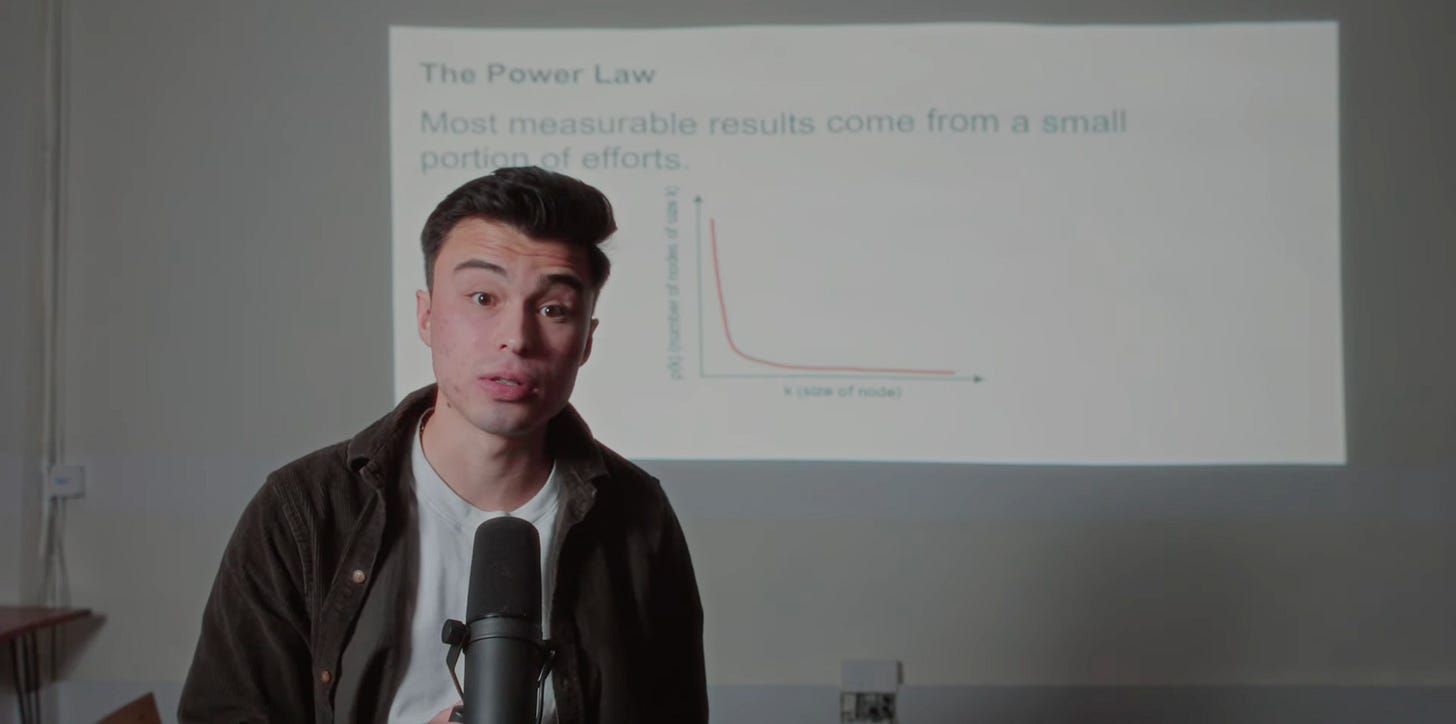
And we can ask ourselves, what types of stories do we want to tell, that we feel people need to hear right now—and actually be at the forefront of that? Instead of sitting on the sidelines waiting for someone in traditional to produce a piece of media…and then talking about it.
The Internet was the voice of the people, but now it's also (in some ways) the voice that sets the tone. I guess you could argue the voice of the elite, as well.
NGL: Agreed.
EV: That comes with an interesting new level of responsibility and, frankly, power that we haven't had before. I am optimistic that there are some creators who will be able to leverage that to do excellent, good work.
NGL: Any last thoughts or comments?
EV: Gosh, I've learned a lot in the past year here. But the biggest lessons since taking the biggest dream job any nerd can imagine are that even if it feels really far away, these are all still real people, and everyone here has feelings.
We have down days. We're all, like, still normal. Life did not feel like I entered a YouTube video, even though so much of my life is making YouTube videos.
And I think that's kind of a beautiful thing.
You can follow along with Eric’s journey here.
Thanks for reading! Shoot us a reply, comment, or DM if anything resonated with you in particular—we respond to them all.




